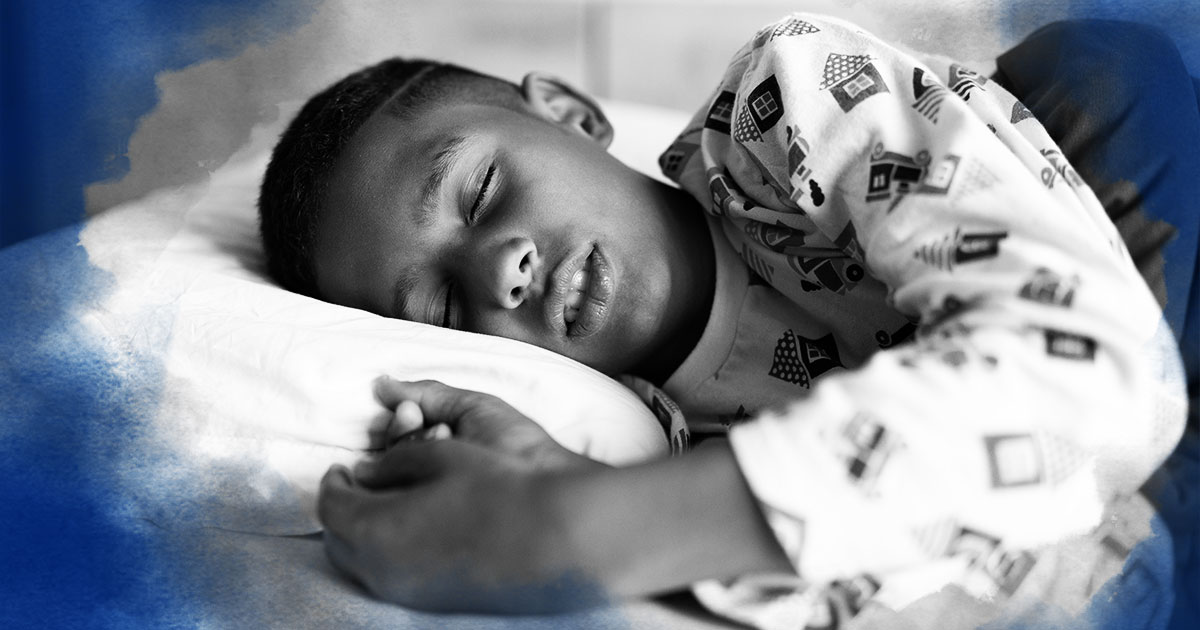

Back-to-school season is in full swing! One of the best and easiest ways to help set your children up for success is incorporating the right amount of healthy sleep into their routine. September 14-20 is Student Sleep Health Week, organized by the American Academy of Sleep Medicine (AASM), to highlight the importance of healthy sleep for students. As a physician specializing in sleep medicine, and a parent, I know how challenging it can be to get your children to want to sleep, but I also understand how important sleep is for their long-term health and success.
What’s keeping your children from getting enough sleep?
When children get sufficient sleep, it has a positive impact on grades, athletic performance and other daily activities. Yet, a new survey from the AASM shows that more than half of parents (57%) say that they have a child/teen who does not get enough sleep on school nights.
There are many reasons children and teens are not getting enough sleep on school nights – from extracurricular activities and sports to after-school jobs and electronics use. In the same survey, 90% of parents said that homework and early school start times are the top culprits impacting students’ sleep on school nights, along with spending time with friends (87%), social media/electronics use (86%), hobbies (86%), sports (85%), chores or jobs (83%), and band/music/clubs (78%).
In addition, the COVID-19 pandemic has disrupted sleep for many families. According to the AASM, more than a third of parents say that the switch to online/remote learning has affected their children’s nightly amount of sleep, and four out of 10 parents acknowledge that remote learning has impacted their children’s wake time and bedtime consistency.
When children and teens don’t get the recommended hours of healthy sleep on a regular basis, it can lead to long-term issues including attention, behavior and learning problems. And for teens, insufficient sleep can be especially dangerous as it significantly increases the risk for drowsy driving accidents.
How much sleep should your children get each night?

It is important to promote healthy sleep habits in early childhood, as these are critical years of growth and early development. Children who sleep well are healthier and happier, and they are more alert and ready to learn in the classroom. Teens are still growing and developing, and sleep is a crucial part of these processes. Sleep also helps restore energy to the brain and body, which we could all use more of!
To promote optimal health, the AASM recommends children 6-12 years of age should sleep nine to 12 hours, and teens 13-18 years of age should sleep eight to 10 hours per 24 hours on a regular basis. If you’re not sure what time your children should be heading to bed, check out the AASM’s handy Bedtime Calculator to figure out an appropriate bedtime.
Getting the recommended hours of healthy sleep on a regular basis is associated with better outcomes for students of all ages, including improved attention, behavior, learning, memory, emotional regulation, quality of life, and mental and physical health. Sufficient sleep helps students excel in the classroom, perform better in sports, look and feel their best, and enjoy life by making better decisions and staying safe.
The benefits of healthy sleep require not only adequate sleep duration, but also appropriate timing, daily regularity, good sleep quality and the absence of sleep disorders. There are so many things that factor into what is considered healthy sleep, which is why it’s so important you help guide your children to prioritize sleep.
Healthy Sleep Tips
No matter where school is taking place this year, we can all agree as parents that having a routine for the school week makes everything run smoother. But getting children and teens into a new school year routine can be challenging, especially if they’re not getting enough sleep!
It’s important students commit to getting the healthy sleep they need to learn, function and grow. Here are some tips to help start and maintain a healthy sleep routine:
- Gradually transition to an earlier bedtime. As kids prepare to go back to school, or as you implement a new sleep routine, take two weeks to gradually move up bedtime by 15 minutes earlier each night, and wake time 15 minutes earlier each morning until they are on their school schedule.
- Stick to a consistent sleep schedule. No matter what the school year looks like – whether in-person or online – it’s important students maintain a consistent sleep/wake schedule. Even though some kids won’t have to get up at specific times to catch the bus or walk to school, structuring their sleep schedule will help them structure their daily routines. Students should continue with morning and bedtime routines, including getting up and going to bed at regular times, so they get enough sleep.
- Set their room up for sleep. Create a quiet, dark and a little bit cool sleep environment for maximum comfort. Make sure they have window coverings dark enough to block out early morning or later evening light.
- Restrict screen time. Considering over eight out of 10 parents (86%) report that social media or electronics use affect the ability of their children/teens to get enough sleep on school nights, according to the AASM, setting restrictions on screen time before bed is key to helping students get to sleep on time. Have kids turn off electronics 30 minutes before bedtime and store them outside of the bedroom overnight.
- Develop bedtime rituals. In place of electronics, consider adding reading, journaling or taking a warm bath or shower as part of a nightly routine.
- Lead by example. Parents and caregivers can help motivate and guide their children by modeling healthy sleep habits, promoting a consistent sleep schedule and sticking to it.
One of the best things parents can do for their children’s/teen’s health and well-being is to encourage routines that will help them get the healthy sleep they need to learn, function and grow so they can excel in their classwork and other daily activities. To learn more, visit http://sleepeducation.org/student-sleep-health-week.